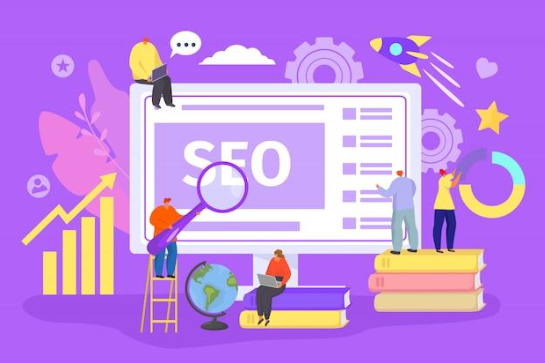Unleashing the Power of SEO Hacks: Boost Your Website's Visibility

A well-designed website isn't enough to attract a significant audience in the competitive digital landscape. You must use Search Engine Optimization (SEO) to increase your website's exposure and ranks on search engine results pages (SERPs) if you want to stand out from the competition. While SEO is a complex and ever-evolving field, there are several SEO hacks that can give your website a substantial edge. We'll look at some of the best SEO tips in this article to help you improve your online visibility and increase natural traffic to your website.
Keyword Research and Long-Tail Keywords:
Any effective SEO approach starts with keyword research. Identify relevant and high-traffic keywords using tools like Google Keyword Planner or Ubersuggest. Instead of solely targeting broad keywords, focus on long-tail, more specific, and often less competitive. Long-tail keywords increase your chances of ranking better on SERPs by enabling you to target a specific audience.
High-Quality Content is King:
One of the best SEO tricks is producing excellent, educational, and interesting content. Search engines, especially Google, prioritize websites that provide value to users. Aim to write comprehensive and relevant content that answers common questions or solves problems within your niche. Remember to naturally include your target keywords throughout the content to improve search visibility.
Optimize On-Page Elements:
Pay attention to on-page SEO elements to ensure your website is optimized for search engines. This entails creating engaging meta descriptions and titles that contain pertinent keywords, employing header tags (H1, H2, H3, etc.) to organize your material, and optimizing the structure of your URLs. User-friendly and keyword-rich URLs can positively impact your website's ranking.
Mobile Optimization:
A mobile-responsive website is essential for SEO as the majority of internet consumers browse websites on mobile devices. Websites that are not optimized for mobile use may experience a considerable decline in search ranks as a result of Google's consideration of mobile-friendliness as a ranking factor. Make sure your website is responsive across a variety of devices and screen sizes to provide a seamless user experience.
Backlinks and Link Building:
Backlinks, also known as inbound links, are crucial for enhancing the authority and authenticity of your website in the eyes of search engines.
Aim to build quality backlinks from reputable and relevant websites within your industry. Guest posting, influencer outreach, and creating shareable content are some effective ways to acquire valuable backlinks.
Increase Website Loading Speed:
Both SEO and user experience depend heavily on website loading speed. Higher bounce rates and poorer search results are two consequences of a website's sluggish loading speed. By employing a content delivery network (CDN), picture compression, and browser caching, you may increase the speed at which your website loads.
Leverage Social Media:
Utilize Social Media: Social media sites have a big impact on increasing website traffic and SEO. By increasing your content's visibility on social media, you may entice more people to your website. Additionally, social signals can indirectly impact search rankings, as popular content tends to attract more backlinks and engagement.
You may drastically improve your website's exposure, draw in more organic visitors, and surpass your rivals in search engine rankings by putting these SEO techniques into practice. It's important to keep up with the most recent trends and best practices because SEO is a continuous process. Analyze your website's performance regularly, make data-driven decisions, and adapt your SEO strategy to achieve long-term success in the dynamic digital world.
Share on
Similar topics:
Similar blogs

SEO Evolution: Adapting to Search Engine Algorithms

SEO Decoded: From Algorithms to Page Rankings
Grow Your Referral and Organic Traffic
Choose a style, use sections to build pages and lastly, add your copy. It only takes a few clicks toget your site ready to go.